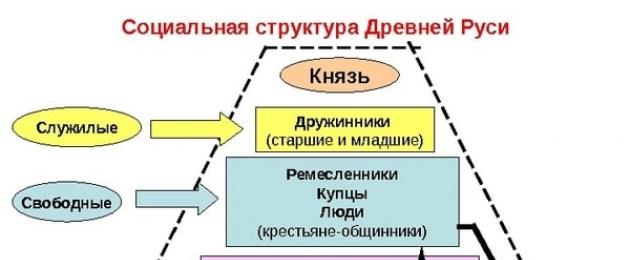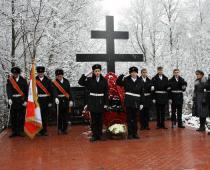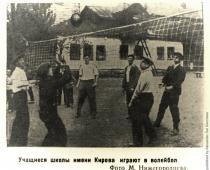The word "smerd" is now considered by many to be a curse (due to consonance with "stink"). In fact, until the 16th century, the term simply indicated the social position of a person and the rights and obligations associated with it.
Freestyle farmer
The word "smerd" is known to historians from "Russian Truth" and the following legislative acts. Outstanding historians (M.N. Tikhomirov, B.D. Grekov, B.A. Rybakov) tried to establish the place of this group in ancient Russian social structure and for the most part they succeeded.
According to the generally accepted opinion, a smerd is a capable peasant-landowner. Historians believe that this was originally the name of a full-fledged member of the rural peasant community, and as feudal relations developed, the concept was transferred to the peasant, whose overlord was directly the state (in the person of the prince or the boyar republic, as in Novgorod). He was under the jurisdiction of the prince, bearing duties and payments in his favor. Smerd was the owner of his property and passed it on by inheritance, but exclusively to his sons. In the absence of such, the prince became the heir, obliged from the inheritance to issue maintenance to the unmarried daughters of the deceased. But a similar practice in the era of feudalism also existed for the upper classes - there, too, a seigneur could become an heir.
Features of criminal liability
However, one can also hear the assertion that a smerd is a dependent person, equal to a serf (personally dependent servant). Proponents of this point of view appeal to the phrase "stink serfs" found in Pravda Yaroslavichi. In the corresponding article, the same vira of 5 hryvnias is assigned for the murder of a simple serf and a "stink serf".
However, most historians do not agree with this interpretation. They proposed two alternative versions. The first says that this article indicates that smerds could also (along with feudal lords) own serfs, and they received compensation for damage on an equal basis with the nobility. The second argues that the term indicates the type of work performed by the serf for the owner. Usually a serf was a household servant, but some were also engaged in agriculture. Such people could be called "smerds serfs", that is, those who are closer to smerds by occupation.
The fact that liability for damage to a smerd or his murder in the legislation Ancient Russia was lower than in relation to "people", that is, unambiguously free, humble personalities. But the work of the farmer was then generally valued low.
Temporarily obligated
Smerd could also move into other categories temporarily. For such cases, there were separate terms. So, a smerd who borrowed from a feudal lord became a “purchase” (“kupa” - debt). If he agreed with the feudal lord to perform some special work for him, then he became a "ryadovich" ("row" - contract). Zakupy and Ryadovichi were limited in their rights, in particular, they could not leave their place of residence or refuse to work. But this lasted until the debt was paid or the work was done. Then the ryadovich or the purchase again became a smerd. Laws protected some of their rights (in particular, the feudal lord did not have the right to demand more than specified in the contract).
Arable land in the times of Russia was the main wealth, the main means of production. The patrimonial organization became the most popular variation of the production organization - the boyars and princes owned the patrimony, they received it from their fathers and passed it on to their sons. Peasants worked on this land - serfs, serfs, purchases, ryadovichi.
IN Kievan Rus along with the capital and boyar estates, there were a large number of communal farmers, so far not dependent on the feudal lords. Such independent communities of peasants paid taxes in favor of the country to the prince.
The first of the most popular categories of dependent peasants named, I suggest that you consider smerds. As you know, smerds are free peasant farmers who cultivate state land and pay a special tax in favor of the state. Compared to other groups of dependent peasants, the smerds were in a rather advantageous position - they had personal freedom, their own land, these people worked honestly and received remuneration, they had no problems with the local princely authorities, if they regularly paid tax, they received a protectorate and had certain civil and human rights. According to various sources, the military service of smerds is the direct participation in campaigns in the infantry, or the supply of horses and food for the army. In addition, this category was the most numerous in Russia. It is the smerds that were the main component of the rural population of Kievan Rus in the 9th-12th centuries. The very concept of "smerd", according to one version, means - "man", "free peasant". Gradually, these free communal peasants became dependent on the feudal lords, lost their personal freedom and independence, “attached” to the land, and over time, the bulk of the free peasants turned into serfs. The development of socio-economic relations has led to the fact that the previously free part of the population has turned into a disenfranchised mass.
The next of the categories we are considering are serfs. This social stratum was not so numerous, but serfs also made up an impressive proportion of the rural population. ancient Russian state. Directly - serfs - a dependent part of the population of Kievan Rus. This is a part of the population, in its position close to the slave. Serfs, for the most part - prisoners of war. Serfs, who already existed in the 9th-12th centuries in Russia, are also called serfs. According to the most common theory, the word "kholop" means "attached to the ground", "fixed peasant". The situation of the serfs was terrible - complete lack of rights and slave labor. Historians argue that Kievan Rus belongs to those states that practically missed the period of the slave system in their development, however, in the conditions of the life of the ancient Russian state, it can be stated that the slave system quietly existed in it next to the feudal system, which is typical for most Slavic peoples. And there is nothing unusual in this - some part of the population will in any case be endowed with less rights than others.
Further, I suggest that you consider such a category of the population as purchases. Zakupy - peasants who are in a difficult financial and social situation, close to servile. Purchases are also called hirelings. It cannot be said that these are people who sell their labor power, rather they are debtors, under a special agreement (the text of which can be found in Russkaya Pravda) become personally dependent on the so-called employer. Purchasing rights are severely limited, but they are more protected than serfs who do not have any social rights at all. It is precisely falling into personal dependence under a certain contract that distinguishes the purchaser from the ordinary proletarian of the times of capitalism, although both of them sell their labor power. TO social rights purchase includes a very dubious right not to be twisted "for no reason", but "just like that." The purchase has the right to defend its rights in court and the ability to leave the owner, subject to certain conditions stipulated in the signed contract. Procurement also have the right to their own property, which they cannot be forcibly deprived of. In addition to rights, there are also obligations. For example, purchasers are required to fulfill all the terms of the contract and are responsible for the property, inventory and livestock of the owner. Only in this case they can count on the observance of all prescribed rights and freedoms.
Usually peasants who had no means of subsistence went into purchases, or hirelings, and becoming dependent was their chance to survive and feed their families. Purchases did various work in the feudal yard, on this basis they are divided into several subcategories. If the purchase runs away from the owner, he turns him into a slave.
The category of the dependent population of Ancient Russia, which is very similar to purchases, is the Ryadovichi. Until now, historians, studying the written sources of the times of the ancient Russian state, have not determined who the Ryadovichi are. According to one of the theories, confirmed by extracts from Russkaya Pravda, the ryadovichi are part of the servants, petty employees in the house of the feudal lord. Another version says that these are smerds who entered into a special agreement (“row”) with the feudal lord, according to which they fell into some kind of feudal dependence and served the owner for pay, food and shelter. This definition brings the rank and file closer to purchases.
From all this, we can conclude that smerds are the largest and most prosperous category of the population of Kievan Rus, because they had personal freedom, unlike purchases and ryadovichi, who lost it in order to survive, and even more so from absolutely disenfranchised serfs. Just serfs - people whose position was actually slavish and are the lowest social category of the ancient Russian state.
SMERDS SMERDS - small landowners who constituted a heterogeneous social and legal status group of the population in Ancient Russia (and in some other Slavic countries). During the period of the XI-XII centuries. S. are primarily communal peasants who have lost their personal freedom in whole or in part. Along with them, the personally free rural population also entered the category C. During the period feudal fragmentation(XII-XIII centuries) the term "S." all rural residents of a certain territory were designated (peasants - subjects of the local feudal lord). S.'s personal freedom was limited by the prohibition of transferring under the guardianship of another feudal lord. In the XIV-XV centuries. the concept of S. in Russia was replaced by a new one - peasants.
Big legal dictionary. - M.: Infra-M. A. Ya. Sukharev, V. E. Krutskikh, A. Ya. Sukharev. 2003 .
See what "SMERDY" is in other dictionaries:
Community peasants in Ancient Russia (9th-14th centuries). Initially free, with the development of socio-economic relations gradually fell into dependence ... Big encyclopedic Dictionary
SMERDY, community peasants in Ancient Russia (9th-14th centuries). Initially free, with the development of socio-economic relations gradually fell into dependence. Source: Encyclopedia Fatherland ... Russian history
In ancient Russian law, free rural inhabitants, as opposed to serfs on the one hand, and princely men on the other. Dictionary foreign words included in the Russian language. Pavlenkov F., 1907 ... Dictionary of foreign words of the Russian language
The category of dependent rural population in Ancient Russia. They are mentioned in Russkaya Pravda, The Tale of Bygone Years, etc. The murder of a smerd was punished with the same fine as the murder of serfs. Their escheated property was inherited by the prince. The word "smerd" ... ... encyclopedic Dictionary
- (smurdi, smardones) social stratum of fame. early medieval societies. In the sources of the 11th-12th centuries. S. are noted in Kievan Rus (Russkaya Pravda and other sources), in Poland, among the Polabian Slavs; S. may also have been in the Balkans. On the question of…… Soviet historical encyclopedia
SMERDY- - the name of feudally dependent peasants in Ancient Russia (9-13 centuries). V. I. Lenin points out that “landowners enslaved smerds back in the days of Russkaya Pravda” (Soch., vol. 3, p. 170). S., attached to the ground, were operated as ... ... Soviet legal dictionary
The name of feudally dependent peasants in Ancient Russia and in some other Slavic countries. In the sources of the 11th-12th centuries. S. are noted in Kievan Rus (Russkaya Pravda and other sources), in Poland, among the Polabian Slavs. S. in Russia, peasants, ... ... Great Soviet Encyclopedia
- ... Wikipedia
stinks- small landowners, who constituted a heterogeneous group of the population in terms of social and legal status in Ancient Russia (and in some other Slavic countries). During the period of the XI-XII centuries. S. is primarily community peasants who have lost their personal freedom ... ... Big Law Dictionary
SMERDY- agricultural population of villages. At the beginning of the historical existence of Russia, it was free, and then gradually became dependent on individuals, princes or estates. The first written collections of laws are somewhat limited in ... ... Cossack dictionary-reference book
Books
- Tsars and smerds: a novel. Benyukh O.P., Benyukh O.P. The action of the novel takes place in the outback of Russia and covers the second half of the 20th century. Against this historical background, the life of two main characters is shown - a village priest and a village teacher. ...
IN modern dictionaries In the Russian language, the word smerd is interpreted as a farmer - free or independent, who in the 14th century began to be called a peasant. It is widely believed that after the boyars at the end of the 15th century, the term "smerd" loses its social meaning and remains in everyday speech as a derogatory nickname. Based on this, the second, figurative, is indicated close in meaning to the derogatory verb "stink". For example, "A man of humble origin" by T. F. Efremova ( Dictionary Russian language Efremova); "A commoner, an ignoble person, as opposed to a prince, a combatant" (Ushakov's Explanatory Dictionary). As synonymous words are given: plebeian, black bone, peasant, cook's son, grubby. At present, smerd is a swearing, insulting word. This is the name of a person who smells bad - both literally and figuratively. That is, it has acquired a complete personal characteristic.
Smerdy in Ancient Russia
There is a version that the word smerdy originally referred to the entire human population engaged in the cultivation of the land. It is no coincidence that it was it that was supplanted by the new word "peasant" that came with the Mongol-Tatar yoke with the same general meaning. Smerds conducted communal management and were free or dependent in different periods and based on circumstances. As a result, new nicknames were received.
With the development of private landownership in Russia, communal smerds fell into princely feudal dependence. At the same time, they remained legally free people, unlike serfs, ryadoviches and purchasers. However, due to the prevailing economic circumstances, free smerd could go into the category, for example, purchases. Such economic and legal dependence arose if a smerd peasant took a kupa (loan) from a feudal lord to improve his own economy. While working off the debt, which he was obliged to repay with interest, the smerd became completely dependent on the patrimony. And in the event of an attempt to escape from obligations, he could be transferred to the category of an independent (full) slave and become, in fact, a slave. However, in the event of a return of the debt, the purchase regained complete freedom.
Smerd could also go into the category of ordinary people. Ryadovichi were people of a simple class who entered into an agreement (“row”) with the master on service. As a rule, they performed the functions of small business executives or were used in various rural jobs.
They belong to the peasants, who lived in Russia from the 9th to the 14th centuries, their main occupation was agriculture. These people were dependent on the prince.
Life history of smerds
Soviet historian Grekov B.D. gave his definition to the bulk of people for five centuries, calling them members of the rural community who were engaged in agriculture. They were in constant dependence on the prince for five centuries. If you look at the scriptures in Russkaya Pravda, it becomes clear that the condemnation of this category of people came from the princes.
The dead had allotments of land, they passed on from generation to generation after their death through the male line. If the farmer did not have a son, then the inheritance passed into the possession of the princes. For their murder, exactly the same penalties were introduced as for slaves.
Most often they worked on state lands and were engaged in their processing, harvesting. So it was in the Novgorod Republic. This is due to the fact that these people belonged to the state peasants, but by affiliation they could be different. The writings also mentioned princely, episcopal and monastic smerds. In their rights there was no free leaving of the lands.
The property, which had no one to transfer, passed into the princely administration. While exactly the same property, but already a community member, then it was customary to divide among the members of the entire community. Amount of the fine on murder one of the representatives of this category, was five hryvnia. The same fine was payable for the murder of an ordinary serf. The murder of a lyudin was punishable by a fine of 40 hryvnia, like any other free resident.
Smerd, who lived in the Novgorod Republic, was dependent on the state. If we consider this concept in a broader form and a little later in time frames, then they acted as the basis of the entire population in the country, forming the lowest layer - the peasants. They had their own land at their disposal, on which they could engage in any economy.
It was impossible to carry out activities on a gratuitous basis. For this they paid prince taxes, and were also obliged to give part of the born fruits to managers. The prince by right had the opportunity to re-gift and relocate them to other places. People were brought as gifts to churches.
Peasants spent their whole lives in villages, and smerds in villages. According to various sources, their military service could consist in participation in walking wax, they could also supply horses to horse wax or participate in it on their own.
If we consider the term "to stink", then during the existence of this category of the population, he invested in himself the significance of the capture of neighboring principalities, when civil strife of princes took place. A few decades later, smerds disappeared, and peasants appeared to replace them.
And for the next two centuries, the term was used for the appeal of the prince to the lower strata of the population. But even when this meaning has become obsolete, commoners and serfs were called smerds, for whom they felt ardent contempt. Landowners and government officials allowed themselves such statements.
Origin of the word
This term came into circulation from the Indo-European language. It includes Slavic peoples, Germans, Armenians, Indians and others. In their translation, it meant a dependent person, an ordinary person.
But there is another version of the origin of the word, associated with religious beliefs. In other words, this name was equated with the pagans. When pronouncing a word, one of several existing directions in Hinduism can be distinguished, and it is referred to as the most ancient.
Translated from Sanskrit it sounds like "smirti" and means "remember, remembering." In a colloquial translation, you can find such a definition as "devotee." After some time, this word was used to name the rural population. And after the adoption of Christianity, it completely disappears.

Does this word have a direct connection with the concept of "stink"
It is not difficult to guess that these words have the same root, which proves their close connection with each other. Throughout the existence of this category of people in everyday life there was such a word as “to stink”. Its meaning was then invested aggressive actions in relation to the population and villages during the passage of civil strife.
After the 15th century, smerds were replaced by peasants, however, the concept itself did not die out and continued to be used in everyday life. Then its purpose was to appeal to the king to the lower stratum of the population. Over time, the word came to be used as landlord curses on delinquent servants or peasants.
- In contact with 0
- Google+ 0
- OK 0
- Facebook 0








